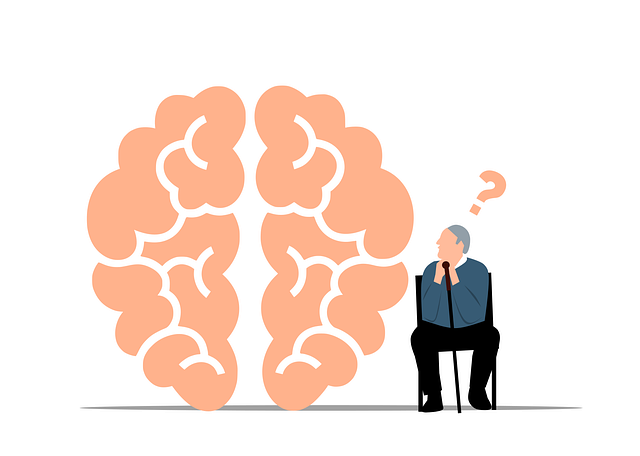Mood Regulation Strategies for Westminster Abuse Survivors: Healing Through Therapy
Westminster Abuse Survivors Therapy (WAST) focuses on empowering individuals to manage their emotion…….
In the realm of mental health and trauma recovery, specialized therapeutic approaches have emerged to address the unique needs of survivors who have experienced abuse. One such notable therapy is known as Westminster Abuse Survivors Therapy (WAST). This article aims to delve into the intricacies of WAST, exploring its definition, global reach, economic implications, technological integrations, regulatory frameworks, challenges, and the transformative impact it has on victims’ lives. By the end, readers will gain a comprehensive understanding of this therapeutic approach and its role in empowering survivors worldwide.
Definition:
Westminster Abuse Survivors Therapy (WAST) is a comprehensive psychological treatment program designed to assist individuals who have survived various forms of abuse, including physical, emotional, sexual, and domestic violence. It is a tailored approach that focuses on the unique trauma responses and recovery needs of survivors, drawing from evidence-based therapeutic modalities.
Core Components:
Historical Context:
The roots of WAST can be traced back to the late 20th century when the field of trauma therapy began evolving. The work of pioneers in cognitive behavioral therapy (CBT) and the increasing recognition of complex trauma in clinical settings laid the foundation for specialized programs like WAST. Over time, the approach has refined its techniques and gained global recognition as an effective treatment model.
Significance:
WAST plays a vital role in addressing the unique challenges faced by abuse survivors. By providing tailored support, it helps individuals heal from complex trauma, regain a sense of control, and rebuild their lives. This therapy is particularly effective for those who have struggled with traditional therapeutic models, offering a more comprehensive and sensitive approach to recovery.
International Influence:
Westminster Abuse Survivors Therapy has gained international recognition and adoption due to its evidence-based nature and successful outcomes. Many countries have adapted the program to suit their local contexts, cultural norms, and healthcare systems. For instance, variations of WAST are implemented in various European nations, Australia, Canada, and certain regions in Asia and Africa.
Regional Trends:
Market Dynamics:
The global mental health services market, including specialized therapies like WAST, is experiencing steady growth. This expansion can be attributed to increasing awareness about mental well-being, rising healthcare expenditures, and growing acceptance of evidence-based treatments. The demand for personalized trauma therapy, in particular, has contributed significantly to the market’s development.
Investment Patterns:
Private equity firms, venture capital investors, and charitable foundations have shown interest in funding WAST initiatives and research. These investments support program development, therapist training, and community outreach efforts. Government grants also play a crucial role in ensuring accessibility and sustainability, especially in public healthcare systems.
Economic Impact:
WAST has the potential to reduce economic burdens associated with trauma-related disorders. By effectively helping survivors heal, it can decrease rates of unemployment, addiction, and recidivism, thereby lowering societal costs. Moreover, the therapy contributes to productivity gains by enabling individuals to regain control over their lives and pursue educational or professional opportunities.
Digital Tools for Therapy:
Technology has revolutionized mental health care, and WAST has embraced these advancements. Online therapy platforms, mobile apps, and virtual reality (VR) simulations are being utilized to enhance treatment accessibility and engagement. For instance:
Data Analytics and Personalization:
Advances in data analytics enable therapists using WAST to personalize treatment plans further. By analyzing patient outcomes and feedback, they can identify effective interventions and tailor them to individual needs. This precision approach enhances therapeutic outcomes and improves overall program effectiveness.
Future Potential:
The integration of artificial intelligence (AI) holds promise for the future of WAST. AI-driven tools can assist in screening, assessment, and personalized treatment recommendations, reducing therapist workload while improving accessibility. However, ethical considerations and ensuring data privacy remain paramount as technology continues to evolve in mental health care.
Key Policies and Frameworks:
The development and implementation of WAST are guided by various policies and regulations that ensure quality, ethics, and accessibility:
Influence on Development:
These policies and frameworks play a pivotal role in shaping the growth and adoption of WAST. They ensure that programs are delivered ethically, maintain high standards of care, and address cultural and socioeconomic barriers to access. Regular reviews and updates to these regulations keep pace with evolving therapeutic practices and technological advancements.
Main Challenges:
Criticisms and Solutions:
Case Study 1: Urban Survivors Initiative (USA)
In a bustling metropolis, the Urban Survivors Initiative implemented WAST to support survivors of domestic violence and human trafficking. The program offered individual therapy, support groups, and community outreach. Results showed significant improvements in trauma symptoms, self-esteem, and social functioning among participants. The initiative also led to increased collaboration between local law enforcement, healthcare providers, and housing agencies, creating a more holistic support system for survivors.
Case Study 2: Rural Healing Center (Australia)
A small community in rural Australia established the Rural Healing Center, providing WAST to survivors of farm-related injuries and agricultural trauma. The program focused on building resilience within the tight-knit community. Through group sessions, peer support, and educational workshops, participants regained a sense of control and purpose. The center’s success inspired similar initiatives across regional Australia, emphasizing the adaptability of WAST in diverse settings.
Case Study 3: Global Trauma Network (International)
The Global Trauma Network is a collaborative effort between mental health organizations worldwide. They implemented WAST as a core treatment model, offering training and resources to local partners. This initiative has led to the establishment of specialized trauma centers in various countries, providing accessible, culturally sensitive care to survivors. The network’s data suggests improved clinical outcomes and increased community engagement, highlighting the power of international collaboration in mental health care.
Growth Areas:
Emerging Trends:
Strategic Considerations:
Westminster Abuse Survivors Therapy is a powerful therapeutic approach that has transformed the lives of countless survivors worldwide. Its global reach, evidence-based foundations, and continuous innovation make it an essential tool in the mental health arsenal. As society continues to evolve its understanding of trauma and mental well-being, WAST will undoubtedly play a pivotal role in shaping more compassionate and effective support systems for abuse survivors.
Q: What types of abuse does WAST address?
A: Westminster Abuse Survivors Therapy is designed to help individuals who have experienced physical, emotional, sexual, and domestic abuse. It recognizes that various forms of trauma share common underlying mechanisms and can benefit from the tailored approach offered by WAST.
Q: How do I know if WAST is right for me?
A: If you have survived any form of abuse and are struggling with its aftermath, WAST could be a suitable option. Consider reaching out to a mental health professional who specializes in trauma therapy to discuss your needs and explore the benefits of WAST.
Q: Can WAST help with co-occurring disorders?
A: Absolutely. WAST is designed to address complex trauma responses, which often coexist with other mental health conditions. Therapists using WAST are trained to recognize and manage these co-occurring disorders, providing comprehensive care.
Q: How can technology enhance WAST therapy?
A: Technology offers numerous enhancements, from remote (teletherapy) sessions for increased accessibility to digital tools for personalized coping strategies and meditation guidance. VR simulations also provide immersive exposure therapy experiences.
Q: Are there cultural considerations unique to WAST?
A: Yes, WAST must be adapted to respect cultural norms and beliefs while maintaining its core principles. Involving local communities and cultural experts ensures the program’s effectiveness and sensitivity in diverse settings.

Westminster Abuse Survivors Therapy (WAST) focuses on empowering individuals to manage their emotion…….

Westminster Abuse Survivors Therapy (WAST) offers vital crisis intervention services for trauma surv…….

Understanding mental wellness requires introspection to identify triggers, coping mechanisms, and be…….

Depression prevention involves understanding individual triggers from genetic factors to environment…….

Westminster Abuse Survivors Therapy (WAST) specializes in helping individuals heal from trauma and p…….

Westminster Abuse Survivors Therapy (WAST) emphasizes holistic mental wellness through specialized c…….

Westminster Abuse Survivors Therapy (WAST) employs the RFM (Resilience, Flexibility, Mastery) framew…….
Westminster Abuse Survivors Therapy (WAST) utilizes emotion regulation techniques, combining evidenc…….